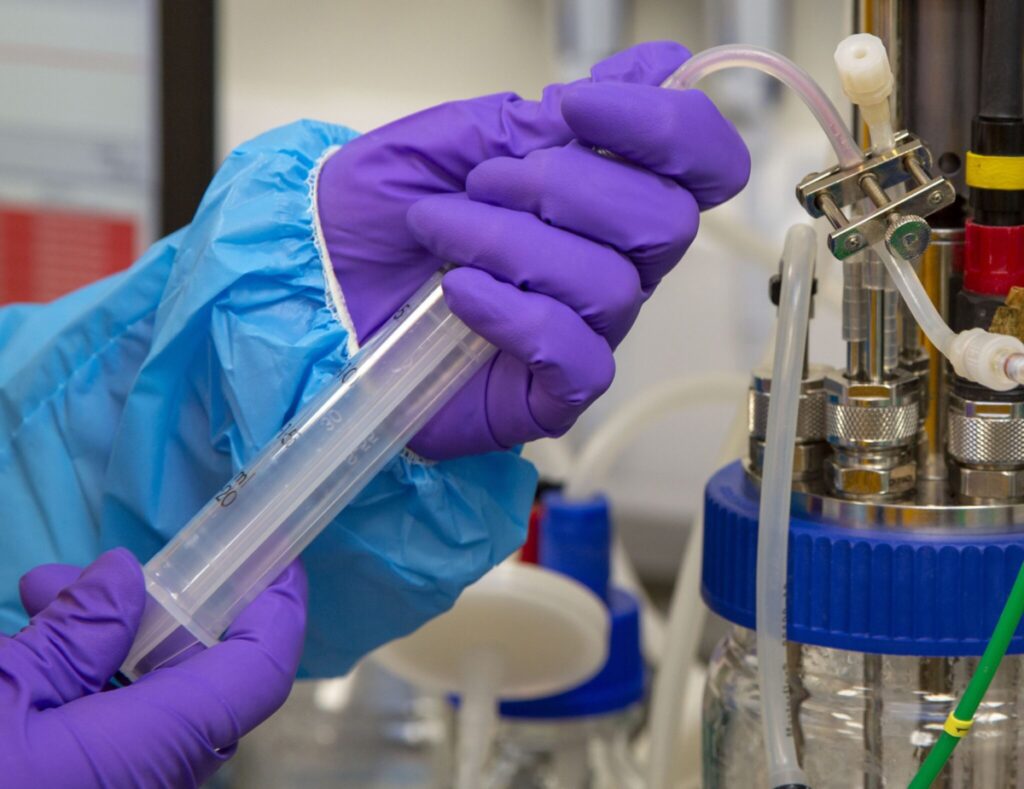SCOTTISH researchers are developing a first-of-its-kind tool to monitor for toxic chemicals using bioengineering, with the potential to transform routine health and safety testing across a range of industries.
Experts from the University of Edinburgh’s School of Biological Sciences, with funding from the Industrial Biotechnology Innovation Centre (IBioIC), have created new technology the size of a SIM card.
This could be used in sectors such as food and drink manufacturing, water monitoring, pharmaceutical development, agriculture, and aquaculture to detect contamination in liquids.

At present, the best way of detecting chemical contamination is by manually taking liquid samples and sending them away for lab-based testing.
This is usually done infrequently, meaning problems caused by issues like excess oxygen, exposure to extreme conditions, or cross-contamination during production processes can go undetected for some time.
The new technology would allow teams to test for foreign pollutants remotely, providing real-time 24/7 readings, using a natural microorganism that causes a reaction when certain chemicals are found.
The team plans to launch the tool, called Nanosensr, under a new spin-out company next year.
Recent data released by Scottish Water showed that sewage overflowed directly into Scotland’s rivers and other water courses more than 14,000 times last year – the highest figure since records began.
The new bio-sensor could help detect such events instantly and determine whether water is safe.
Dr James Flewellen, research associate and biosensor commercialisation team lead at the University of Edinburgh, said: “Many industries depend on routine health and safety and quality checks to ensure the products they are manufacturing are fit-for-purpose.
However, the current process for detecting potential contaminants can be complex, expensive and slow.
Instead of sending away samples for lab testing, we have developed a unique biosensor device that combines biology with electrical engineering to help detect potential issues with chemical contamination in liquids at point-of-use and in real time.
“The technology could be applied to a range of settings and sectors, from checking whether drinking water is safe to monitoring fermentation processes in the drinks industry.
So far, we have proof that the bioengineering and biosensor concept works, and the next stage is to refine the equipment so that it is waterproof and can withstand a range of operating conditions, such as temperature variations.”
Liz Fletcher, director of business engagement at IBioIC, added: “This project is a great example of how bioengineering can be applied to a range of real-life issues.
“Liquids and electrics don’t usually mix well, but in this case they work together as sensors to provide an early indication of potential contamination issues, allowing companies to intervene or take preventative measures.
“It is great to be supporting early-stage research and new business ideas with exciting potential.”












